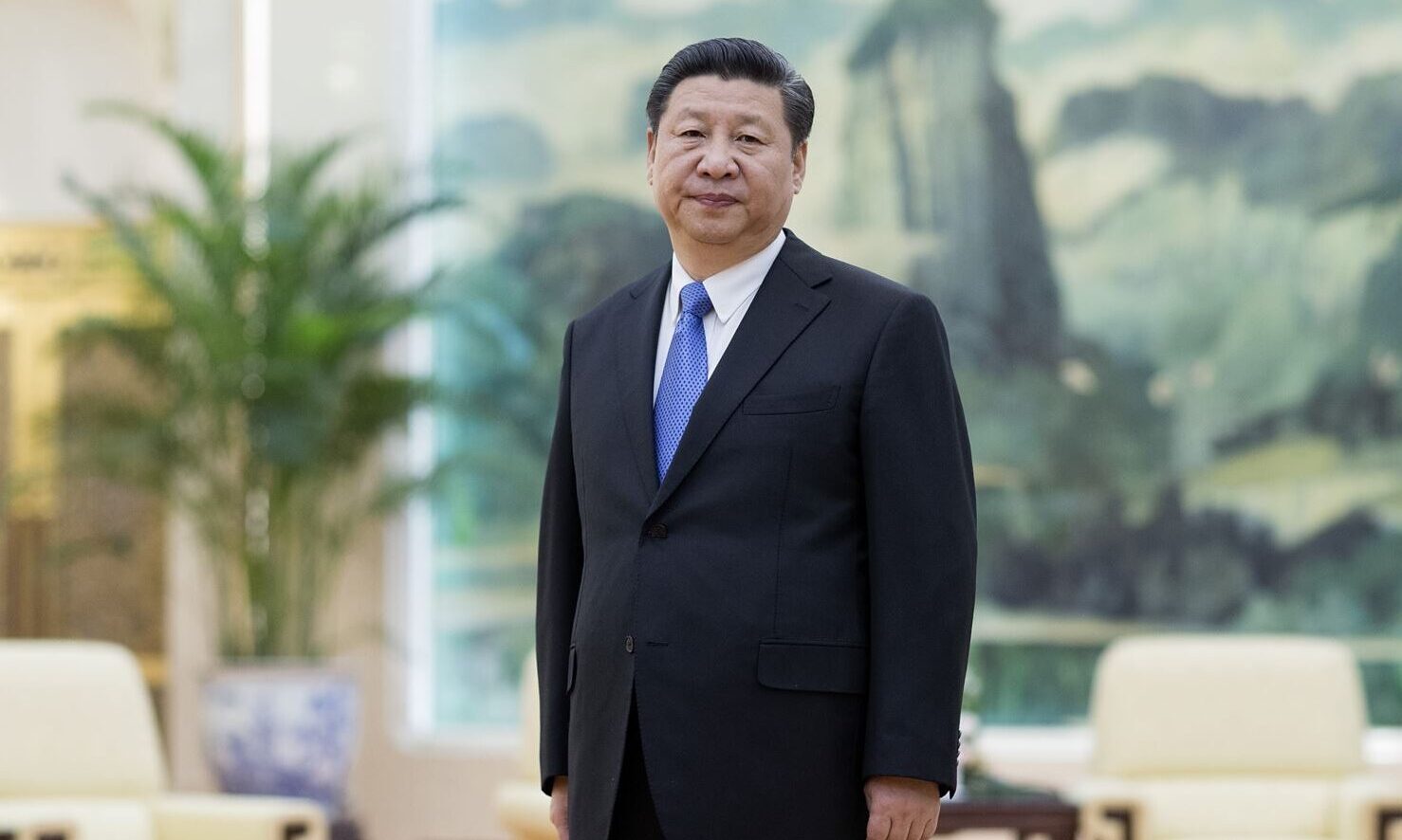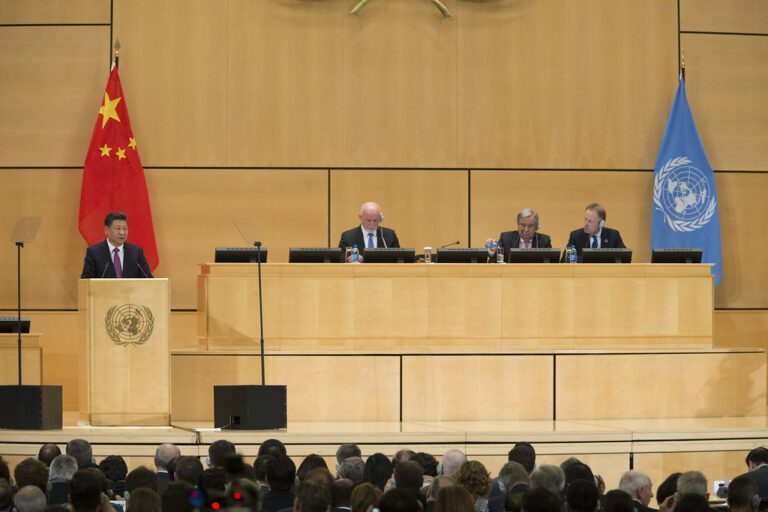
Xi Jinping wants China to believe he has always supported private business. Before the 2025 National People’s Congress, a People’s Daily report detailed how he has done so at every stage of his career: “He is very pro-business, required us to be pro-business, to enrich businessmen, and to provide good services for enterprises so they can make money,” recalled Lian Zhixuan, who worked with Xi in Fujian in the 1990s.
At a February meeting with China’s leading private sector CEOs, Xi pledged equal protection for private and state enterprises. “It is time for private enterprises and entrepreneurs to demonstrate their capabilities. […] We hope they provide new and greater contributions to promoting Chinese modernization,” Xinhua recorded Xi as saying. Most saw the meeting as a policy reversal, driven by economic stagnation and the rising stakes of the tech war with the United States.
The claim that Xi has always supported private business is no doubt tone-deaf. But rather than opposing private enterprise, Xi rejects liberal economic thought’s binary opposition between private and public forces. Instead, he sees the two as complementary forces serving national interests. In this sense, private companies can flourish as long as they support China’s development goals. Any deviation from this path is swiftly corrected.
Xi’s embrace of private businesses should therefore be seen as a declaration of victory. Private enterprises, once unchecked, have been brought under control, and are now ready to fully contribute to his vision of China as a self-reliant, technological superpower.
The State-Market Model
Xi’s belief that only a strengthened Party could deliver China from the challenges he inherited is now well established. His vision for the country has been consistent since his November 2012 inauguration, when he declared that “science and technology […] must be at the core of the overall development of the country.” In the years that followed, this vision coalesced into what Tai Ming Cheung has called the ‘Innovation-Driven Development Strategy’ (IDDS).
More importantly, the vision contradicted the widely held assumption – both inside and outside China – that the country would transition toward a liberal market economy. While Xi himself was expected to “spearhead a resurgence of economic reform,” with reform seen as synonymous with liberalization, the 2008 financial crisis demonstrated the dangers of such a path. Left to its own devices, private businesses could derail China’s development, and companies could thus not be allowed to squander scarce resources in unproductive sectors, especially as the US maintained a technological lead that threatened to relegate China to permanent subservience.
The recent stagnation of China’s economy has overshadowed the validity of some of Xi’s concerns. In the 2010s, conglomerates such as Anbang, HNA and Evergrande morphed into quasi-Ponzi schemes, desperately seeking funding for unproductive acquisitions and investments. Given the significant negative consequences, Beijing would likely have been compelled to overhaul its management of private enterprises even without Xi’s leadership.
Yet Xi’s vision was hardline, requiring a fundamental recalibration of the private sector’s role to align with the IDDS. Enterprises remained an “indispensable force behind China’s development,” but needed to “strengthen their patriotic feelings,” cultivate a “strong sense of responsibility for the nation,” and “be brave enough to innovate.” The Party made it clear: adapt or face the consequences.
The Carrot and Stick
Beijing’s actions proceeded along two tracks. The first sought to rein in “the disorderly expansion of capital,” mostly through campaigns to reassert state authority over private businesses that had grown beyond their regulatory scope. The second focused on expanding financial and political support for private enterprises involved in cutting-edge technological research that could enhance China’s self-reliance.
The first track had the most visible consequences, as some of Beijing’s actions appeared to be implemented with little regard for economic repercussions. The September 2020 ‘Three Red Lines’ policy, which abruptly cut off property developers’ access to funding, was a major misstep that continues to weigh on the economy. Combined with pandemic-era lockdowns, such erratic policies dampened private sector confidence to such an extent that even signals from Xi himself have failed to restore it.
Still, some actions were justified. The ‘anti-monopoly campaign,’ often viewed as the moment when Xi turned against the private sector, was a necessary crackdown on companies engaging in practices that undermined financial and market development. Internet platforms’ anti-competitive behavior had long harmed smaller businesses by forcing them to distribute exclusively on single platforms or risk having their products suppressed or delisted. The irony here is that a campaign seen as undermining the private sector may have, in some cases, led to increased marketization for smaller firms.
There is also little doubt that Ant Group, whose cancelled IPO made it the campaign’s highest-profile target, had expanded its financial services well beyond regulatory limits. Jack Ma, CEO of Ant Group’s parent company Alibaba, knew that regulators were closing in but still chose to publicly criticize them, handing Xi the perfect opportunity to demonstrate the consequences of neglecting a “strong sense of responsibility for the nation.”
At the same time, the second track made it clear that Beijing was not solely focused on punishing private companies. The 2018 ‘Little Giants’ program signaled the government’s confidence in private firms’ potential contribution to its long-term development goals, which sought to transform SMEs into industry leaders through subsidies and preferential access to capital. Over 110,000 companies have received support at the national and provincial levels.
As Beijing adjusted its support in response to market trends, some industries shifted from being majority state-owned to predominantly private. In 2019, Beijing spurred consolidation of the EV sector, which had hundreds of unproductive manufacturers sustained by government finance, cutting national subsidies for EV purchases while heightening competition by allowing Tesla to build a gigafactory in Shanghai. Once dominated by state-owned enterprises, the EV market by 2024 was led entirely by private automakers: BYD (34.1 percent), Geely (7.9 percent), and Tesla (6.0 percent).
The dual-track approach sent a clear message to private businesses: succeed in advancing the IDDS, and support will be abundant; undermine it, and punishment will be swift.
A Calculated Shift
Five years after the anti-monopoly campaign, China’s leading private-sector businessmen are visibly contributing to the country’s technological advancement. Take the attendees of Xi’s February meeting: Huawei’s Ren Zhengfei, DeepSeek’s Liang Wenfeng, and BYD’s Wang Chuanfu. Each represents a company that has quietly worked toward realizing China’s innovative leadership while keeping a low profile. And their patriotic zeal is real. As noted by Kevin Xu, DeepSeek’s code is open source partly because its engineers want to change global perceptions of China as a country that cannot innovate. Huawei and BYD have long shared a similar desire to showcase China’s competitiveness.
Jack Ma was also present, having pivoted his company toward AI to align with the goal of “contributing to Chinese modernization.” This shows that even those previously targeted by the state can be rehabilitated if they follow the Party line.
And while many remain skeptical about whether government support will endure, Beijing has signaled a transition for over a year. At the 2024 National People’s Congress, Xi called on private-sector entrepreneurs to “support the development and growth of the private economy and enterprises” while urging the removal of “obstacles that restrict private enterprises from fair market competition.” Qiushi, the Party’s theoretical journal, reprinted this quote ahead of last July’s Third Plenum, which traditionally sets the economic agenda for the next five years.
Most importantly, the Third Plenum affirmed that private and public enterprises will “compete in the market on an equal footing,” with “a favorable environment” and “more opportunities for the development of the non-public sector.” Beijing is also advancing a Private Sector Promotion Law, which aims to strengthen legal protections for private enterprises, including safeguards against arbitrary fines that have long plagued smaller businesses at the local level. The central government’s intent to support private business is thus clear, and so are the conditions attached to it.
The key question, however, remains: why now? The economy does require greater private-sector dynamism. But this shift has been enabled by Xi’s successful consolidation of power. Having brought private companies to heel, Xi can now afford to be magnanimous. Before Ant Group’s cancelled IPO, regulators were concerned about the company’s ability to “push back against attempts to bring it under control.” No private enterprise would enjoy such privileges today. Instead, they operate in a system of managed competition. Control is thus loosened for private enterprises that align with national objectives, but the state’s firm hand remains ready to rein in those that do not.
Way Forward
The final question concerns economic growth. Beijing has demonstrated its ability to direct innovation, but whether this will translate into the broad productivity gains needed for sustainable growth remains uncertain. Xi, however, is unlikely to be overly concerned. Winning the tech war and reducing China’s vulnerability to US pressure remain his top priorities, with all other issues subordinated to these goals. As long as private enterprises remain China’s brightest source of innovation, Xi’s embrace will continue.
Written by
Alistair Burlinson
EnodoEconomicsAlistair Burlinson is a Research Analyst at Enodo Economics, an independent macroeconomic, political, and geopolitical forecasting company that focuses on China and its global impact. His key area of research concerns the intersection between China’s domestic politics and economic development.


